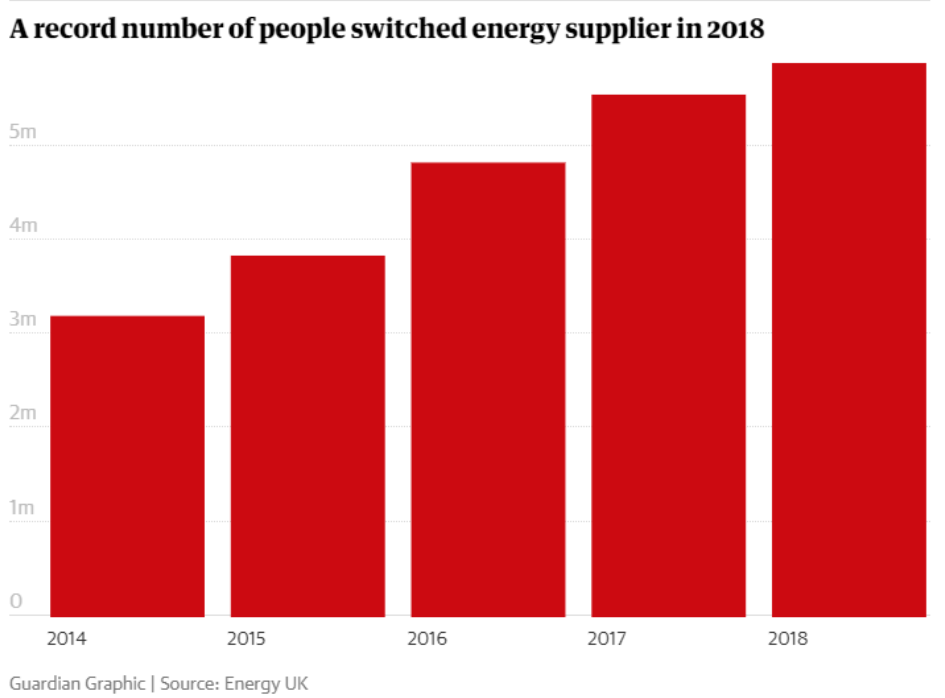Energy Price Cap Effects on 2019
2018 was a record year for energy switching, but will the price cap change that in 2019? Figures published this week show that 2018 brought the highest level of switching activity on record. In total, more than 5.8 million customers changed energy supplier to grab a cheaper deal. In December alone, 467,000 customers switched supplier, 10% more than in December 2017.
The total number switching equates to around one in five customers, and is a clear six percent increase over the amount who switched in 2017. On average, around half a million customers a month were changing their supplier, making the industry one of the most engaged in comparison to other sectors.
The figures were published by trade association Energy UK , who applauded the level of engagement in the energy sector, but warned that the newly introduced price cap could have a negative influence on future switching behaviour.
Where are customers going
Figures show that around 1.7 million customers moved to a small or medium supplier during 2018. Although this is a reduction in the forecast 2.4 million moving away from the big six, it still counts for around 30% of all switches and is the highest level of smaller supplier adoption so far.
It’s thought that the surge in switching activity is a combination of a couple of factors. Earlier in the year, the record 57% energy price increase will have contributed to more switching. Also, as the energy price cap was due to come into force at the start of 2019, astute customers may have looked to lock into cheap fixed deals before they disappeared from the market.
The impact of the price cap on switching in 2019
Around 11 million homes currently on default tariffs have had their bills capped since the start of the year. As predicted, many of the cheapest energy deals vanished towards the end of December, as suppliers prepared for the new legislation. According to Which? the number of dual fuel tariffs costing less than £1,000 a year dropped from 77 to just 8 in the year to the end of December.
Although some of the cheapest deals have gone, leaving less choice for customers, those disengaged with switching and on a supplier’s SVT will be saving on average £76 per year. However, the gap between the most expensive SVT and cheapest fixed deal has been narrowed from £250 to between £150-£200, but there is still a significant advantage to those willing to switch supplier.
Worryingly, Ofgem themselves have admitted that the price cap may negatively affect switching behaviour in 2019, as customers feel they are protected from ‘rip off’ tariffs by the new legislation. In reality, they could still save double or even triple the amount they are protected by if they chose to seek out a better deal.
The Chief Executive of Energy UK, Lawrence Slade, has voiced his concerns about the price cap. He commented:
“My hope remains that, with the recent introduction of the price cap, we don’t see this element of competition undermined and switching levels fall, as is predicted in Ofgem’s impact assessment.”
Labour MP and chair of BIES, Rachel Reeves, has spoken out also, saying that customers should continue to shop around, as they “cannot rely on energy suppliers giving consumers a good deal or delivering the quality customer service which they deserve.”
While the price cap will certainly prevent suppliers passing on inefficiencies to their customers with unfairly priced tariffs, clearly switching or renegotiating at the end of a contract is still the best strategy. Suppliers should encourage customers to seek out a new fixed deal at the end of their contract, rather than relying on the price cap to ensure a fair energy bill.






